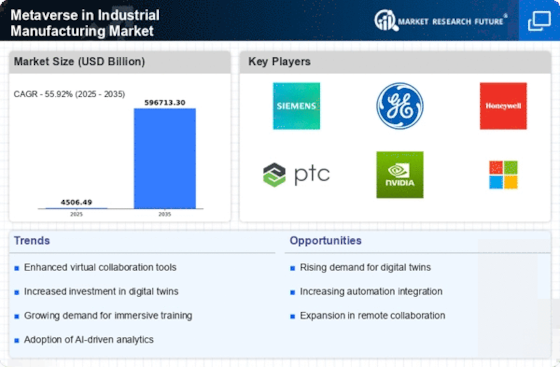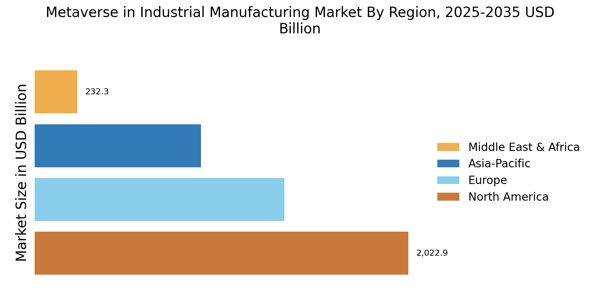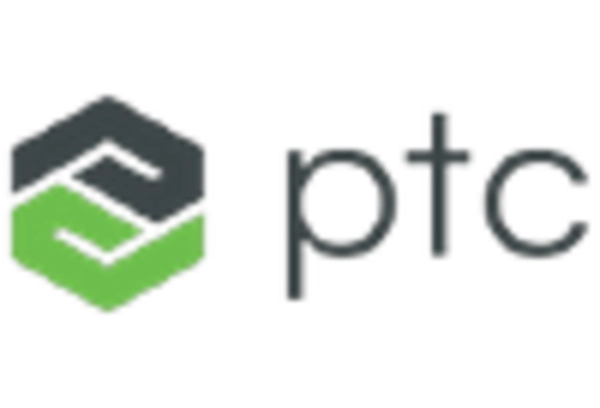Supply Chain Resilience
Supply chain resilience is a critical driver in the Metaverse in Industrial Manufacturing Market. The complexities of modern supply chains necessitate innovative solutions to enhance visibility and responsiveness. The metaverse enables manufacturers to simulate supply chain scenarios, allowing for better risk management and contingency planning. By utilizing virtual environments, companies can identify potential disruptions and develop strategies to mitigate them. Recent studies indicate that organizations employing metaverse technologies in their supply chain management can improve their response times by up to 40%. This resilience is essential for maintaining competitiveness in an increasingly volatile market.
Data-Driven Decision Making
Data-driven decision making is emerging as a crucial driver in the Metaverse in Industrial Manufacturing Market. The ability to collect, analyze, and visualize data in real-time allows manufacturers to make informed decisions that enhance efficiency and reduce costs. The integration of metaverse technologies enables the visualization of complex data sets in an immersive environment, facilitating better understanding and quicker responses to market changes. Reports suggest that companies leveraging data analytics in their operations can achieve up to a 15% reduction in operational costs. This trend underscores the importance of data in shaping strategic initiatives within the manufacturing sector.
Customization and Personalization
Customization and personalization are becoming increasingly vital in the Metaverse in Industrial Manufacturing Market. As consumer preferences evolve, manufacturers are compelled to adapt their offerings to meet specific demands. The metaverse provides a unique platform for creating tailored products through virtual simulations and interactive design processes. This capability not only enhances customer satisfaction but also reduces time-to-market for new products. Market analysis indicates that companies focusing on customization can see a 25% increase in customer retention rates. Thus, the ability to offer personalized solutions is driving manufacturers to invest in metaverse technologies.
Integration of Advanced Technologies
The integration of advanced technologies such as artificial intelligence, augmented reality, and virtual reality is a primary driver in the Metaverse in Industrial Manufacturing Market. These technologies facilitate immersive experiences that enhance design, prototyping, and production processes. For instance, AI algorithms can analyze vast datasets to optimize manufacturing workflows, while augmented reality can provide real-time guidance to workers on the shop floor. According to recent estimates, the adoption of these technologies could lead to a 20% increase in operational efficiency within the next five years. This integration not only streamlines processes but also fosters innovation, allowing manufacturers to remain competitive in a rapidly evolving landscape.
Remote Work and Virtual Collaboration
The shift towards remote work and virtual collaboration is reshaping the Metaverse in Industrial Manufacturing Market. As companies increasingly adopt hybrid work models, the need for effective virtual collaboration tools becomes paramount. The Metaverse offers a platform where teams can interact in a shared virtual space, enabling real-time communication and collaboration regardless of geographical barriers. This trend is supported by data indicating that organizations utilizing virtual collaboration tools experience a 30% improvement in project completion times. Consequently, manufacturers are investing in metaverse solutions to enhance teamwork and maintain productivity, thereby driving growth in this market.


















Leave a Comment